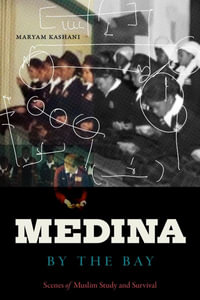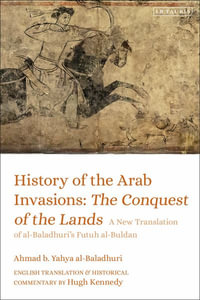| Preface to the First Edition | p. ix |
| Preface to the Second Edition | p. xvi |
| Acknowledgements | p. xx |
| Introduction: Islam between Culture and Politics: the Scope and Implications | p. 1 |
| The issues: what is political Islam? | p. 1 |
| Islam and cultural modernity | p. 4 |
| Is semi-modernity manageable? | p. 6 |
| An important distinction: globalisation and universalisation | p. 8 |
| Ignorance and confusion | p. 11 |
| From Islamic modernism to fundamentalism | p. 12 |
| From the caliphate to the secular nation-state - and back to an Islamic order? | p. 13 |
| The place of this book in my study of Islam: the formative years | p. 16 |
| The cultural study of Islam | p. 18 |
| Religion, Culture and Development - Islam between Past and Present | |
| Introductory remarks | p. 24 |
| Religion, Culture and Social Reality: Islam as a Cultural System, and its Diversity | p. 28 |
| The tension between belief and reality | p. 28 |
| The symbolic clothing of reality | p. 34 |
| What is Islam? Unity and diversity in historical perspective: religion between doctrine and reality | p. 37 |
| Islam between divine law, everyday spirituality and a rational view of the world | p. 45 |
| Cultural Patterns and the Perception of Change in Islam. A Religious Model for Reality: the Islamic Worldview | p. 53 |
| The historical background: the Islamic religious view of the world, its sources and its goal | p. 56 |
| The Islamic sources of the prevailing cultural patterns | p. 59 |
| Islamic law (Shari'a): a social regulative or a stumbling block? | p. 63 |
| The exposure to the industrial West in the modern age | p. 66 |
| Culture and Social Change: Tradition and Innovation in Cultural Analysis | p. 69 |
| The study of culture at the crossroads | p. 70 |
| Evolution and modernisation | p. 72 |
| Religious reformation and cultural innovation | p. 75 |
| Who are the instigators of cultural innovations? | p. 78 |
| The Context: the Politicisation of Islam in the Global Age | |
| Introductory remarks | p. 84 |
| The Dichotomy of Structural Globalisation and Fragmenting Cultural Self-Assertion: the Case of Islamic Civilisation | p. 87 |
| Culture, economy and politics in the global age | p. 87 |
| Islam at the crossroads: competing civilisational models for the future | p. 90 |
| An interplay is not a mechanism: modernisation, culture and development | p. 93 |
| Bringing culture into international studies: what is development in a global context? | p. 96 |
| Civilisations do matter! | p. 99 |
| Civilisation-awareness, politicisation of religion and its impact | p. 101 |
| Modernisation and secularisation: religion, culture, social change and politics | p. 102 |
| Is the politics of Islamic revival a spiritual mobilisation? | p. 106 |
| Islam between secularisation and de-secularisation | p. 110 |
| From secularisation to profanation? | p. 113 |
| The Politicisation of Religion: Political Islam as a Defensive-Cultural Response to Global Challenges. A Social-Scientific Interpretation | p. 116 |
| The socio-political constraints. The political revitalisation of Islam | p. 119 |
| al-nizam al-Islami as a backward-looking political utopia of political Islam | p. 126 |
| From Religious Belief to Political Commitment: the Fundamentalist Revolt against the Secular Order. Between Cultural Modernity and Neo-Absolutism | p. 131 |
| A clear distinction: Islam is not Islamism. Cultural relativist confusions | p. 132 |
| The background: the predicament with modernity | p. 136 |
| Culture and knowledge | p. 138 |
| Islam and the West: a cultural revolt? | p. 141 |
| Conclusion | p. 143 |
| The Framework: the Means of Politicisation. The Revival of the Shari'a and the Islamisation of Education | |
| Introductory remarks | p. 146 |
| Social Change and the Potential for Flexibility in Islamic Law: the Shari'a between Ethics and Politicisation | p. 148 |
| Legal differences and cultural diversity | p. 148 |
| The roots and patterns. Islamic law as Shari'a | p. 153 |
| The reform of Islamic law and the potential for flexibility in the Islamic notion of law | p. 159 |
| Institutions of Learning and Education in Islam: between the Cultural Accommodation of Change, Religious Orthodoxy and the Politics of Cultural Islamisation | p. 167 |
| Learning in Islam and Islamic institutions of education | p. 168 |
| The Universitas Litterarum as a European educational institution: its universalisation and incursion into the Islamic civilisation | p. 174 |
| The crisis of Muslim education and the related cultural perceptions | p. 179 |
| The Topicality: Islam and the West between Inter-Civilisational Dialogue and Political Antagonisation | |
| Introductory remarks | p. 188 |
| Islam Matters to the West! Islam and Europe, Islam in Europe: Islamic Migration between Cultural Assimilation, Political Integration and Communitarian Ghettoisation | p. 191 |
| Islam in Europe: the Euro-Mediterranean dimension | p. 192 |
| Is the global village an international system or an international society? | p. 195 |
| Islam and the West in the Euro-Mediterranean region. Inherited burdens and new patterns | p. 197 |
| Islam in the West: culture and politics | p. 200 |
| Dialogue needs to be reason-based. The politicisation of cultural-religious beliefs leads to confrontation | p. 203 |
| An urgent distinction: cultural pluralism is not communitarian multiculturalism | p. 204 |
| What Islam in Europe? Conclusions | p. 206 |
| Islam and the West in the Age of Conflict among Civilisations: the Alternative of Intercultural Dialogue as a Means of Conflict Resolution | p. 210 |
| Why do Europeans know so little about Islam? | p. 211 |
| Religion and politics in Europe and Islam | p. 214 |
| Between polemics and analysis: understanding world politics and the heterogeneity of civilisations | p. 216 |
| Islam: civilisational unity in cultural diversity | p. 218 |
| Islam and the claim for a de-Westernisation of the world | p. 222 |
| The options: head-on collision or bridge-building between the civilisations | p. 224 |
| An alternative to fundamentalism in Europe: Euro-Islam as an opening for migrants | p. 226 |
| Is an Islamic-Western peace of civilisations possible? Cultural dialogue without self-denial | p. 228 |
| The Predicament of Islam between Culture and Politics Revisited after September 11, 2001 and March 11, 2004 | |
| Introductory remarks | p. 232 |
| September 11, the Global Cultural Turn and the Return of the Sacred in Islamic Civilisation: between Religious Revival and the New Totalitarianism of Political islam | p. 234 |
| Is Orientalism at work when jihadism is addressed critically?: freedom of speech, the philosophical discourse of modernity and the study of Islam | p. 235 |
| Islam and the debate on the return of the sacred | p. 244 |
| The study of political Islam since the Islamic Revolution in Iran and September 11: the overall context | p. 249 |
| The alternative to global jihad: joining democratic peace | p. 254 |
| Political religion vs globalisation and the secular nation-state | p. 259 |
| Is dialogue over order possible under conditions of polarisation? Islamic peace vs democratic peace | p. 262 |
| Islam and the return of the sacred revisited: conclusions | p. 269 |
| Notes | p. 273 |
| Bibliography | p. 316 |
| Name Index | p. 328 |
| Subject Index | p. 331 |
| Table of Contents provided by Ingram. All Rights Reserved. |
























